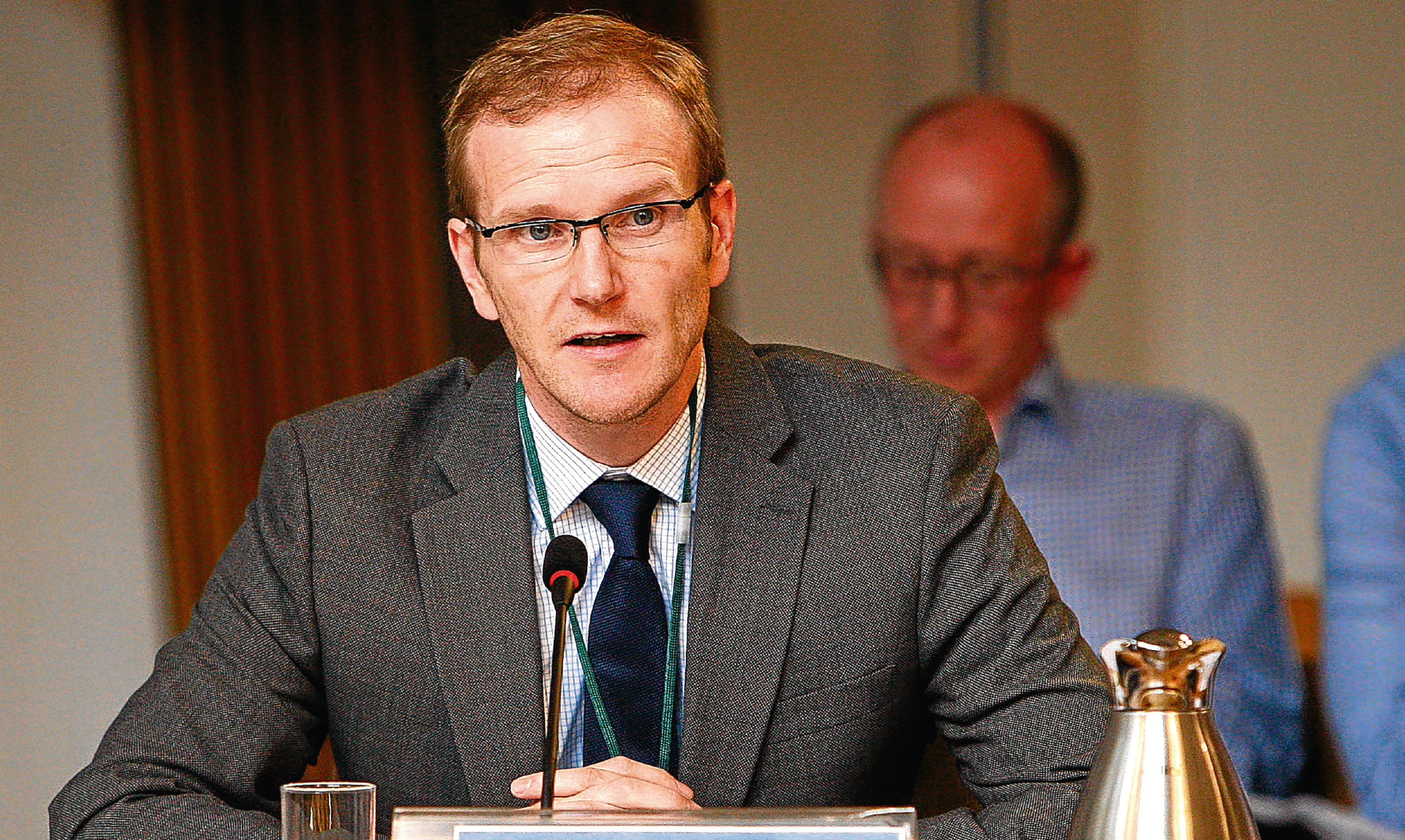Scotland has no choice but to change – and the sooner we realise this the better.
The idea that we wait for big constitutional matters to resolve before things get done is seriously wrong. That is like arriving at a train station at dawn but insisting only tomorrow’s express will do.
We can’t afford to wait.
Strathclyde University has invested in boosting its economic forecasting unit, called the Fraser of Allander Institute. Part of this was to recruit Graeme Roy from the Scottish Government.
He not only knows where all the bodies of the Scottish economy are buried but has a good memory of who buried them.
He was there for the SNP administration’s long, slow wrestle with Scotland’s future from 2007 to 2016. This makes him an excellent person to listen to on the challenges facing the country, now that he is freed of civil service neutrality and political masters.
None of what he says is particularly cheery – if it’s comfort you are looking for, then look away.
He warns of a worst case scenario of a 6% cut to the Scottish budget by 2020/21.
That is £1.6 billion, or the equivalent of everything spent on government financial planning, skills for workers, culture and the environment. Roy speculates the main cut will fall on local government – never much favoured by the SNP administration.
The cut is a result, in part, of the continued austerity programme of the UK government. Scottish spending will be reduced because cuts are still the fashion across the public sector.
There is another element at play too in Roy’s analysis – that of the Scotland Act 2016.
The third such act since 1998, it instructs Holyrood to raise 50% of what it spends.
Where nearly all Scottish spending money used to come in the form of a cheque from the Treasury. Now, a large chunk of it is dependent on taxes raised directly from the Scottish economy.
If times are good, Holyrood may raise more than it expects and, naturally, if times are bad, less money might come in.
Well, times are not great and probably going to get worse.
Scotland may find that relying more heavily on her own economy – what every major party wanted – is a bumpy ride.
Unfortunately, Scotland’s woes don’t stop there.
That cheque from the Treasury is calculated by the Barnett formula, designed to give the country higher than UK average spending.
The future of this politically controversial deal is supposedly safe – the document guaranteeing it as part of further devolution is entitled “An Enduring Settlement”.
I have spoken to several people involved in that document and the Smith Commission process which led to it – and none of them think it is remotely enduring.
The pressure comes from the new nationalist confidence in England post-Brexit vote, where voters feel Scotland gets a special deal and the money would be better going elsewhere.
Perhaps the deal can be protected and the money keeps flowing but it would be prudent to plan on the basis it will shrink over time.
All of which adds up to a huge problem – ironically, a problem not dissimilar to the economic shock that independence would have brought.
That is why Scottish policy makers have no choice but to change.
To imagine we can protect NHS spending, massively increase child care and keep existing services ticking over seems fanciful.
We need an urgent conversation about what to reform, what to cut and who to protect.
My fear is that the longer the Scottish government delays that conversation or pretends there is no problem, the more likely the cuts when they come will be as incoherent and harmful as Tory austerity.
In 2010 Campbell Christie was appointed to lead a commission looking at how to deliver better services for less money. There was no shortage of ideas and people engaged with his work constructively.
Unfortunately, little of the commission’s work has been acted upon.
We need to discuss the practicalities of the economy as they are and accept that further cuts are coming, no matter our constitutional choice.
The SNP’s Growth Commission is one response – find ways to boost the economy and so improve tax returns – but it looks like the usual suspects going through the motions.
The first step is to admit there is a problem – the politics of promising more are over. Now, we need leadership and honesty.
The First Minister hinted at all this in her speech launching the Programme for Government last week.
She announced a £500 million facility allowing businesses to borrow with a view to investing in productivity and entrepreneurship.
Where she went wrong was to swiftly pin the blame on Brexit and the Tories for all this. The truth is that wider forces are at work. Blame won’t solve the problem.
And the other truth – as Roy and the Fraser of Allander are in doubt about – is that were we independent, the same pressures would be present.
We have no choice but to change.
